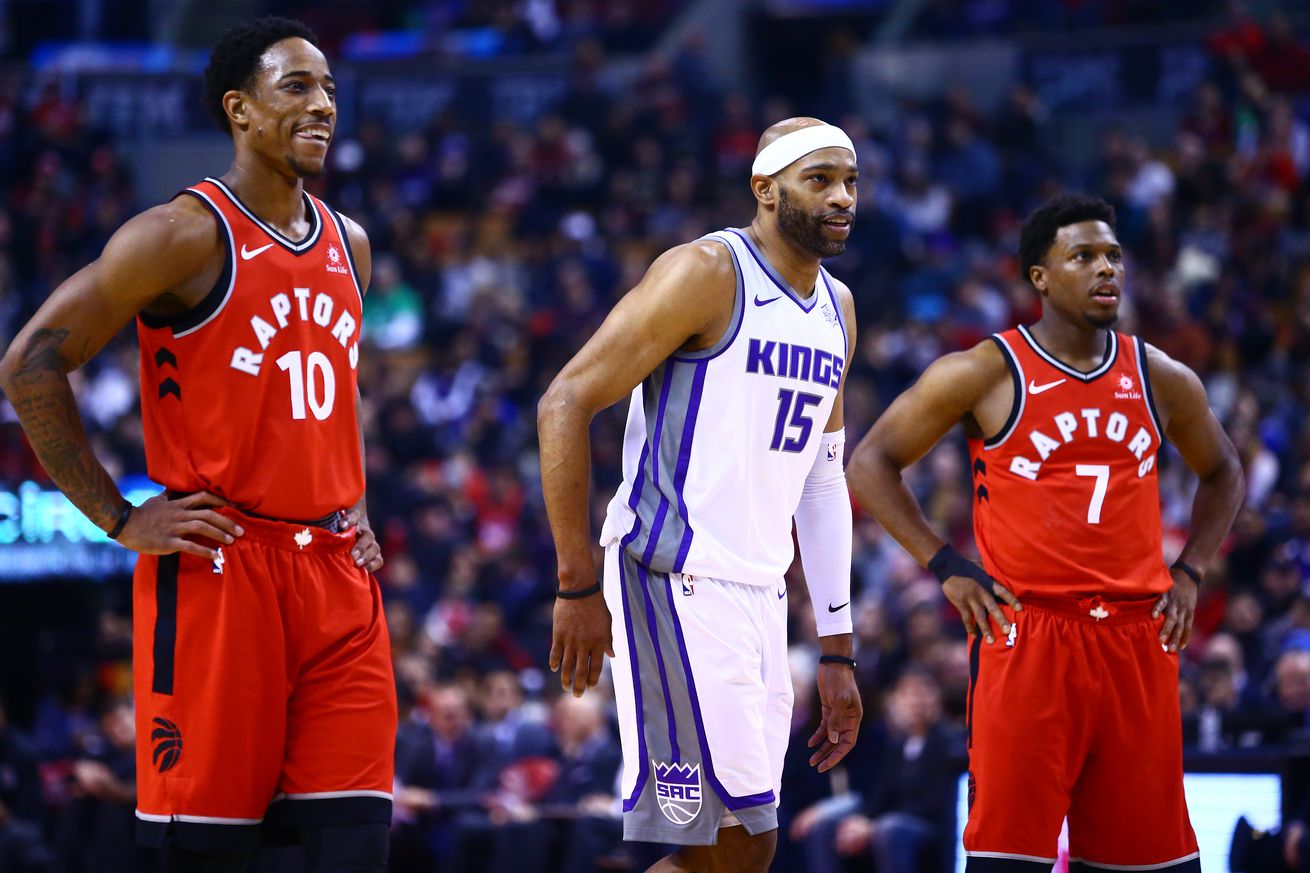
As the team approaches its 30th anniversary season, now’s the time to look back and ask: How did we get here? And who got us here?
It hasn’t always been smooth sailing these past three decades, but over the years a handful of franchise centerpieces have lifted the Toronto Raptors to relevance, consistency and an NBA Championship.
With the Raptors approaching their 30th anniversary season, the time is ripe for looking back on bygone eras and asking: How did we get here? And who got us here? And to answer that, what could be more appropriate than choosing an all-time starting lineup?
Given the nostalgic nature of this exercise, choices will be made not only based on players’ skill level, but also their impact and place in Toronto Raptors lore. Let’s start with a gimme.
Here is my all-time Toronto Raptors starting five:
Point Guard: Kyle Lowry
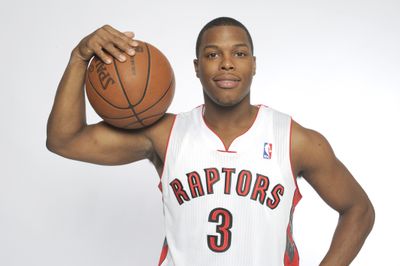
Photo by Ron Turenne/NBAE via Getty Images
No explanation required here. Considered by most to be the G.R.O.A.T., Kyle Lowry arrived in Toronto in 2012, joining a desolate, post-Bosh team with a .304 winning percentage over its last two seasons.
By the end of Lowry’s nine-year tenure the team had achieved its first 50-win season (and did it another four years in a row), made seven consecutive postseasons, appeared in its first conference finals and won a title. Lowry had some great teammates along the way, and formed one half of a fan-favourite duo with DeMar DeRozan. But make no mistake – he was the engine that made it go.
Lowry made six All-Star teams (most all-time as a Raptor), made an All-NBA team (and, if we’re being honest, was snubbed in 2020) and put together an iconic performance in the championship-clinching game six against Golden State, among a litany of other memorable games. He’s the team’s all-time leader in win shares, assists, steals and threes. When he retires, Lowry’s number seven will hang in the rafters of Scotiabank Arena – and perhaps he’ll be honoured with a statue, unflinchingly taking a charge on the Maple Leaf Square pavement.
Shooting Guard: Vince Carter
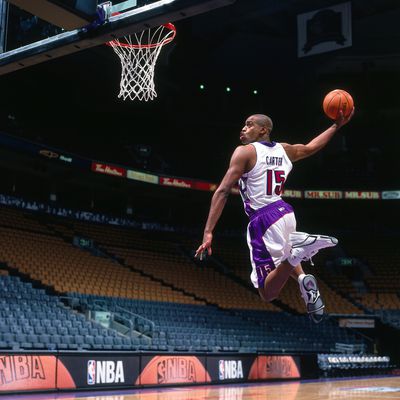
Photo by Nathaniel S. Butler/NBAE via Getty Images
When Vince Carter first returned to Toronto as a New Jersey Net after his 2004 departure, Raptors fans barraged him with relentless, and honestly impressive amounts of booing. This continued for about a decade – until the 2014-15 season when Carter, at this point a grizzled vet with the Memphis Grizzlies, received a mid-game tribute as part of the Raptors’ 20th-anniversary festivities. After so many years of jeering and booing, the Air Canada Centre crowd rose to their feet and allowed themselves to cheer for him.
For fans, Carter’s exit was so painful because of what he meant to the city. Before Carter, the Raptors were a bottom-dwelling expansion team without any All-Stars. Then Carter wore a jersey that read “TORONTO” during the greatest Slam Dunk Contest performance of all time.
He led the Raptors to their first three playoff appearances, and their first series victory. He became the team’s first All-Star, earning five nods and making two All-NBA teams. His 27.6 points per game in 2000-01 remain the franchise-best in a single season. And he was electric to watch.
Fittingly, he’ll be inducted into the Naismith Basketball Hall of Fame next month. He became the Raptors’ first superstar, and with basketball’s surge of popularity in Canada, his legacy is as strong as ever. Make no mistake: Toronto loves Vince Carter.
Forward: DeMar DeRozan
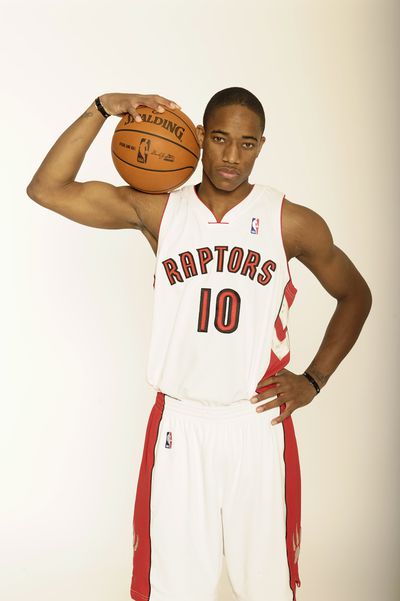
Photo by Ron Turenne/NBAE via Getty Images
After establishing himself as an All-Star in the mid-2010s, Demar DeRozan seemed poised to join the ranks of homegrown Raptors stars who decided to excel someplace in the United States. Since 1995, that sequence of events was all Raptors fans knew. Instead, DeRozan re-signed. He became the first franchise player who chose to stay, signalling a shift in the team’s identity. Vince Carter had put Toronto on the map, but DeMar DeRozan made it his home. He wasn’t lying in that famous 2010 tweet: “Don’t worry, I got us…”
Since the Raptors traded him in 2018 – and especially after they won the championship that very season – DeRozan’s place in Raptors lore has become a bit hazy. DeRozan and Lowry were always thought of as a duo (and what a duo they were), but ultimately only one of them held the Larry O’Brien trophy.
As for DeRozan: no, he wasn’t always an awesome playoff performer. Yes, he left more to be desired on the defensive end of the floor. But together with Lowry, DeRozan turned around a floundering Raptors franchise and willed them to become postseason mainstays. It became easy to take his steadiness and clutch shot-making for granted. When things got dicey, DeMar could get to the free throw line with relative ease.
He remains the franchise’s all-time leader in points, games and free throws. As a Raptor he made four All-Star teams, two All-NBA teams and helped lead them to the conference finals. And most importantly, he normalized voluntarily playing in Toronto, truly embracing the city.
Forward: Kawhi Leonard
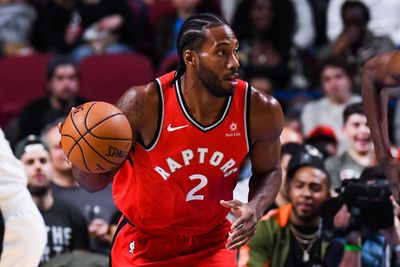
Photo by Icon Sportswire
You don’t trade a franchise player like DeMar DeRozan unless the return is something too good to pass up. Kawhi Leonard, it turned out, was too good to pass up. There’s a simple argument against picking Leonard here: he played just one season with the Toronto Raptors. You won’t find him on any Raptors career leaderboards, and his stint was too brief to put him in real G.R.O.A.T. consideration. But that one year was all Leonard needed to steer the team to its first ever NBA title.
Sometimes that year still feels like a dream. Despite 22 missed regular season games, 2018-19 Kawhi Leonard is probably the greatest single year of a Raptors player we’ve ever seen. His strength and ball-handling ability allowed him to so consistently get to his spots, and his stifling defense meant he was always contributing to winning.
He could not only control games, but single-handedly transform them. He made the All-Star Game, All-NBA team and won Finals MVP. Had Leonard stayed, he could’ve become a Toronto immortal (or maybe an oft-injured what-if). Instead, we were blessed with a year of absolute, but finite euphoria. And while they won’t be naming streets after Kawhi in Toronto,
I just can’t keep him out of this starting five. (Fun tidbit: When testing the strength of my WiFi connection, I search “Kawhi Leonard shot” on YouTube. Sometimes I test my WiFi even when it’s working perfectly fine.)
Center: Chris Bosh
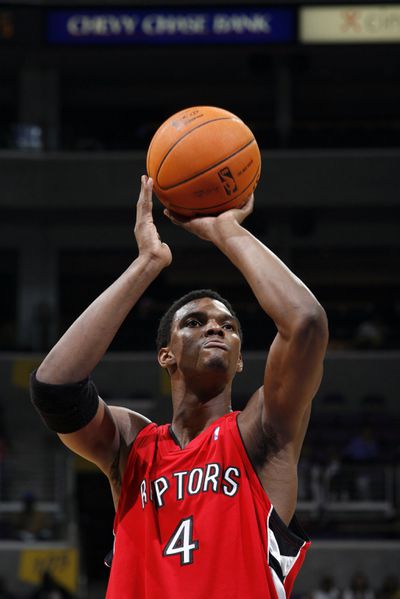
SetNumber: X76811 TK1 R1
After Vinsanity, but before Lowry and DeRozan’s We the North era, were the Chris Bosh Raptors. Less popular than Vince and not as successful as the We the North teams, Bosh’s era still has its own merits. He was an All-Star in five of his seven seasons with the team. He made an All-NBA Second Team in 2007, finishing seventh in MVP voting (the closest a Raptor has ever gotten to the award). He led a team with no remarkable second option to a 47-win season, and back-to-back postseasons.
Then again, Bosh is also the only player in this starting five who never won a playoff series with the Raptors. But let’s face it: this lineup needed size, and Chris Bosh is the perfect small-ball center to anchor this lineup. Before he settled into his role as the Heat’s overqualified third option, Bosh was a legitimate number one. He’s third in scoring for the Raptors, and remains the franchise leader in blocks and rebounds. He is the only star big man in Raptors history, and until that changes, this spot in the starting five remains his to lose.
Sixth Man: Pascal Siakam
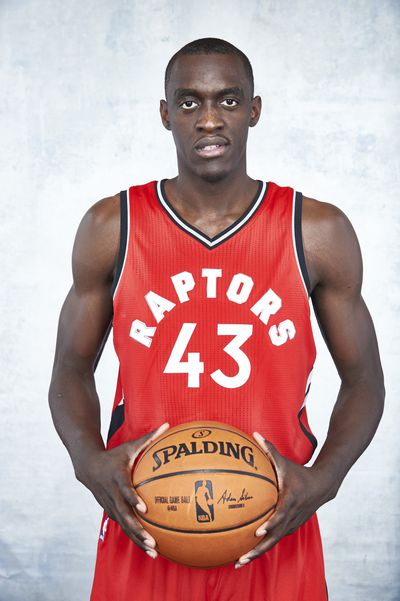
Photo by Jennifer Pottheiser/NBAE via Getty Images
The toughest omission from the starting five, Pascal Siakam was a key part of some deep playoff runs. Between two All-Star and All-NBA nods, the Most Improved Player award and the championship-clinching bucket against Golden State, Siakam is inextricably tied to the Raptors’ most successful era. As a former 27th-overall pick, he’s also the greatest success story from the Raptors’ 2010s run of player development.
While Siakam had the benefit of All-Star teammates for the earlier part of his career, he also led the 2021-22 Raptors as the number one option to a 48-34 record. If fit were a bigger concern in this exercise, Siakam’s defensive ability and playmaking could’ve earned him a spot in the starting five. And with some more time as a Raptor he could’ve continued climbing franchise leaderboards. But ultimately the team stalled out in the play-in range and decided to trade him in favour of a rebuild. Siakam stands at fifth in all-time scoring for the Raptors, and fifth in games played (one ahead of Bosh).
What do you think of our All-Time Starting Five? Who would you take out, and replace with? Any staggering omissions? Let us know!